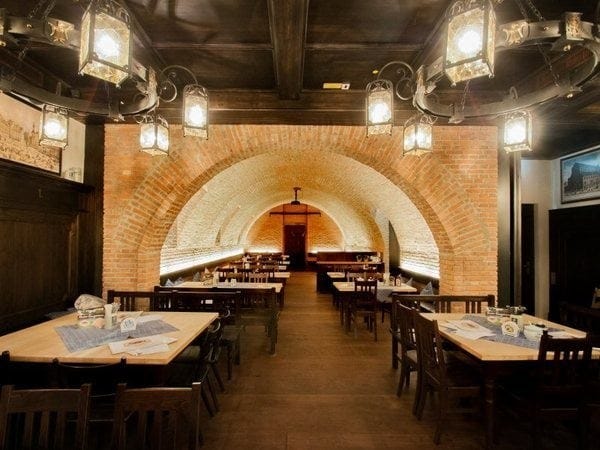I recently had the pleasure of attending two exciting industry events - ProMat in Chicago and Aerospace Tech Week in Munich. Chicago never disappoints as a destination, and this trip was no exception. Though I did make a rookie mistake taking a cab from McCormick Place to the airport, spending over 2½ hours trapped in traffic. Those new people-moving drones coming out of China would've been perfect for bypassing Chicago's notorious congestion! Next time, I'm definitely taking the train.
My Munich accommodations came with an unexpected twist. I'd snagged a great deal on a hotel, only to discover it was smack in the middle of the red light district! The Germans, as I quickly learned, are quite open about such things. Fortunately, the hotel itself was quiet with impressively clean bathrooms, and the neighborhood felt perfectly safe. The location had its perks too - right next to Old Town, allowing me to explore central Munich. I treated myself to a traditional Bavarian restaurant experience, complete with plentiful beer in a boisterous atmosphere. I ended up seated next to visitors from Kazakhstan and Ukraine, though most patrons seemed to be locals.
ProMat was massive - the claim of 50,000+ attendees seemed entirely believable. I was there supporting Thomas at sSy.ai as we launched SCOTi® for Material Handling. Our booth saw constant foot traffic. The most common refrain? "AI is the future, but we're not implementing it yet." I suspect that will change following the recently announced agreement between sSy.ai and FORTNA.

The Chicago food scene didn't disappoint. Liam Stanton treated me to dinner at Frontera Grill - proper Mexican food is something I deeply miss about the US, though I've gotten pretty good at making it at home. It was great catching up on Liam's latest projects. Thomas and I also enjoyed a meal at Grill on 21, which was equally delightful.
ProMat had an undeniably upbeat energy. The material handling industry seems to be rebounding from its post-COVID slump after that massive pandemic-era buildout. Robotics solutions were everywhere, with drones zipping around overhead. I'm still skeptical about warehouse drones, though. They might alleviate congestion issues, but I'm not convinced they represent the future of the industry. Time will tell, though I do worry about potential safety incidents.
Aerospace Tech Week in Munich presented quite a contrast - a much smaller show that attendees claimed was half the size of last year's event. Despite attracting big names like Ryanair's COO, the atmosphere carried a distinct sense of gloom. My conversations with Boeing representatives painted a picture of internal chaos - management selling off non-flight assets and implementing severe headcount reductions as they struggle to stabilize. Airbus wasn't faring much better after the shock tariff announcements that came during the show. Adding to the industry anxiety, China announced that drone carriers are now licensed to operate in certain markets. As one Airbus official put it, "China is now setting the standards."
As regular readers know, I'm always fascinated by the startup scene. Aerospace Tech Week featured some genuinely intriguing innovations. Avioxx is producing jet fuel from landfill waste using novel catalysts that make their product cost-competitive with conventional aviation fuel. The environmental benefits are somewhat nuanced - while landfills do trap carbon, converting waste to jet fuel ultimately releases it. However, landfills also generate significant methane, which is particularly harmful to the environment. Either way, it's a clever concept that I hope succeeds.
Another standout was Lineat, which is recycling carbon fiber. They've already got operational machinery producing material with approximately 90% of virgin carbon fiber's strength at a fraction of the cost. They're sourcing waste material inexpensively from Airbus, which generates substantial scrap when manufacturing the A350. European automakers should take notice, especially as they face increasing pressure to make recyclable vehicles while simultaneously incorporating more carbon fiber. I wonder if this recycled material might also benefit the robotics industry.

Munich Restaurant (before he people arrived).
I noticed numerous startups applying AI to optimize MRO maintenance schedules. The space seems oversaturated, and I question the value compared to traditional optimization techniques. We'll see which, if any, survive the next few years.
Many startups desperately need marketing help. Too many booths featured nothing but a company name - no indication of what they actually do. Surprisingly, several of these sloganless booths weren't even staffed!
One striking observation was the absence of Chinese companies. China has become increasingly active in aerospace and must have developed impressive material handling systems by now. I didn't even notice Chinese representatives walking the floor to assess competitors. It feels like we're waiting for the other shoe to drop - when will they suddenly enter Western markets in force? I think I may need to plan a trip to China to see what's happening there firsthand.
As we await China's inevitable market entry, the time for AI adoption isn't tomorrow—it's today. Those companies implementing AI solutions now are building the operational efficiency and market intelligence that will prove crucial when facing sophisticated Chinese competitors. While many executives at ProMat echoed the familiar "AI is the future, but we're not doing it yet" mantra, this hesitation creates vulnerability. Chinese enterprises are already integrating AI deeply into their operations, supply chains, and product development—not as experimental projects but as core business infrastructure. The agreements between innovators like sSy.ai and FORTNA signal that the industry is finally recognizing this reality. Remember: when Chinese companies do emerge in Western markets, they won't arrive with yesterday's technology or business models. They'll come armed with systems refined through years of AI integration in the world's most dynamic manufacturing ecosystem. The question isn't whether your business should adopt AI—it's whether you'll do it before or after your market position depends on it.
Written by Oliver King-Smith, smartR AI

